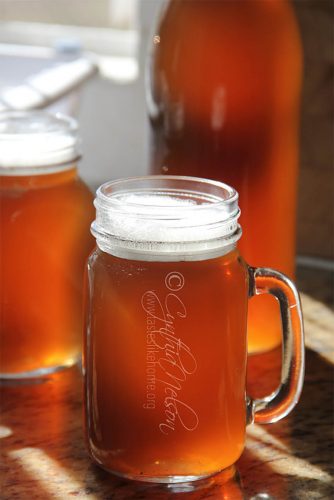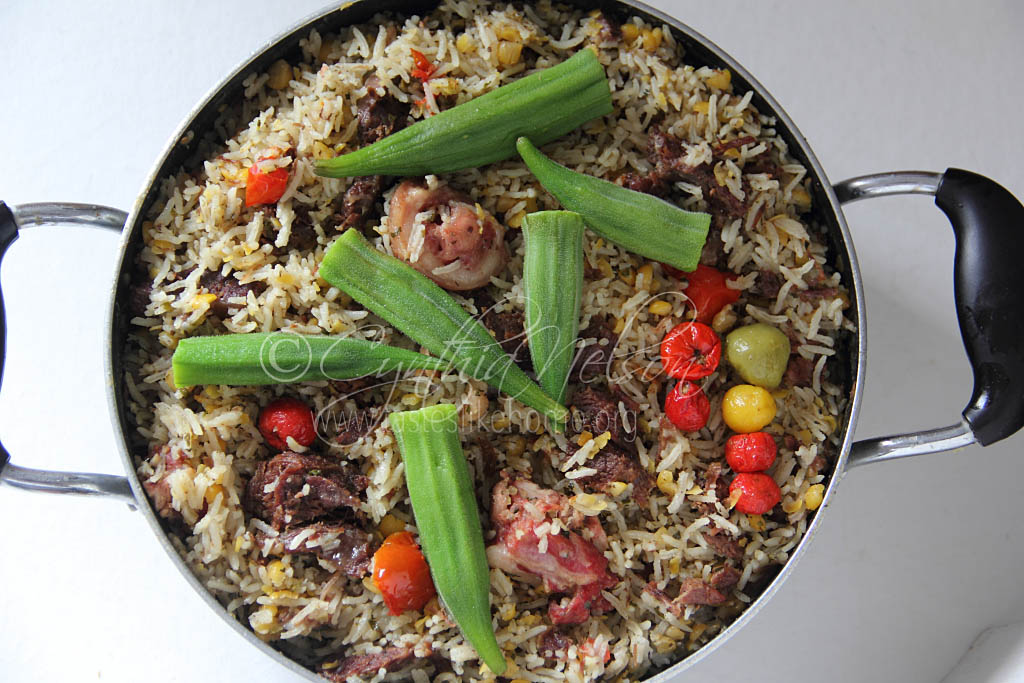
Mauby, Swank, Shine Rice, Cook-up Rice, Conkies, Metemgee and more were mentioned. The Emancipation Festival, formerly known as Folk Festival, is a national cultural celebration that offers an education of the past. It is an opportunity to celebrate achievements and various aspects of our culture that make us who we are as Guyanese. A very prominent aspect of that is the food. Specifically the types of food and beverage that have been part of our cuisine for as long as we can remember. What exactly is ‘ole-time’ food?

It refers to an era where cooking was about slow food, stretching, and making do. Granny ‘ole-time’ food is also considered “sweet hands” food. There were no recipes with listed ingredients and directions; it was a little of this and that; a pinch, or sprinkling of the other, or a handful of something. To actually prepare the food, it was stirred, flipped, brewed, boiled or cooked down until there was a cue detected by the sense of sight, smell, touch, taste or sound. It’s the original masterclass style of cooking. The dishes mentioned above are telling, more so because of the time and skill necessary to make them in order to yield a taste that would transport many to their days of childhood: of sunlit afternoons, skipping, running, climbing, swinging and pitching marbles; thirst quenched with cups of fresh squeezed juicy limes, mixed with water and golden, brown sugar – Swank, practically called, lime water. The real thing, not the versions modernised with essence or bitters.
Shine Rice – rice cooked with fresh-squeezed coconut milk. Simple, yet requiring skill so that the rice is not pasty, each grain tender and discernable. The milk, made from hand-grated coconuts, mixed with water and squeezed tightly to extract the liquid. The fresh milk is rich with flavour, and when boiled with the rice, its natural oil moistens, providing added flavour to the dish. Considered a peasant dish, Shine Rice is not regularly made these days. Some consider it to be poor people’s food.
Mauby would have been made from the bark boiled with spices, brewed by hand, sweetened, and set to ripe/ferment for a couple of days; brewing each day to ensure good development of flavour. Proper tasting mauby has a subtle bitter finish at the end. These days, a lot of mauby is made from syrup with just the essence of flavour of the bark and a whole lot of sugar.
Conkies are slow, specialised food. While we have modern appliances that slice and shred in seconds, none can beat the hand-held box grater that gives the unique texture to the coconut and pumpkin when grated, mixed with spices and cornmeal and steamed in prepared banana leaves. Making Conkies is time-consuming, and a labour of love. A lot of people love Conkies, but few know how to or want to make them. There’s an art to it, right down to wrapping and tying the Conkies for steaming. You know it’s done cooking by using the sense of smell. The aroma fills the atmosphere.
The Emancipation Festival offers a taste of home. On the Guyana Today show that I referenced at the top of the column, Director of Culture Tamika Boatswain had remarked, “We have moved so much away from our local cuisine that we ourselves are even forgetting”. That is at once sad and telling. Guyana is in a rapid state development with shifting landscapes in all aspects of life, society and influences. It behoves us not to lose ourselves, our essence, and all that makes us who we are – Guyanese. What a melting pot! What a pot of Cook-up! Our food has always been great and there are many of us who will continue to ensure that it remains great and reaches even greater heights.
Every day we should appreciate or own, and on occasions, such as Emancipation, I encourage you to go to the Festival and celebrate all that unites us.
Cynthia






